In recent years, we have worked hard to expand the Colorado Book Club Resource collection, which now stands at a massive 800+ available sets! This means that the collection has doubled in size since the start of 2021, and we’re not finished yet. Many of the sets in the collection were donated by public libraries across the state, so a big THANK YOU to everyone who donated books over the years!
We are continually excited by the collection we are cultivating, which includes an ever more diverse range of titles. Covering all the major genres, a lot of the “important” books over the years, as well as popular book club titles, there is bound to be something (or many somethings!) for all types of book clubs. Some of the new additions are indeed tried and tested by book clubs, some are oldies but goodies, and others are practically warm off the presses. More than a few are to be found on the American Library Association banned books lists. All of them would surely make for a great read and interesting discussions. I encourage you to browse this list of all current titles, or you can peruse the catalog. Below is just a sampling of sets that we’re excited about.* Look out for Colorado authors!
Oh, and if you’ve had a set from us recently, you might also have received a little something extra in the form of free seed paper bookmarks and branded pens made from recycled materials and bamboo. Want some of these for your book club? Reach out to bookclub@coloradovirtuallibrary.org. That is also the place to send any questions or suggestions, and to discuss book donations. We always love to hear from you. New to the Book Club Resource? Get your library signed up here.
Now, to the good stuff!
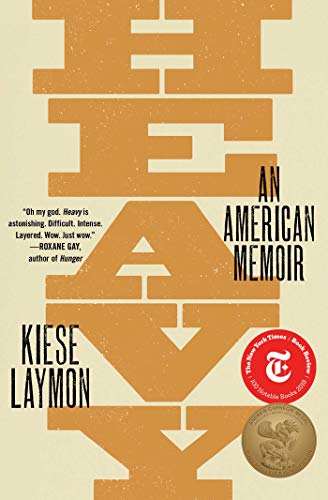
Heavy: An American Memoir, by Kiese Laymon
In Heavy, Laymon writes eloquently and honestly about growing up a hard-headed black son to a complicated and brilliant black mother in Jackson, Mississippi. From his early experiences of sexual violence, to his suspension from college, to his trek to New York as a young college professor, Laymon charts his complex relationship with his mother, grandmother, anorexia, obesity, sex, writing, and ultimately gambling. By attempting to name secrets and lies he and his mother spent a lifetime avoiding, Laymon asks himself, his mother, his nation, and us to confront the terrifying possibility that few in this nation actually know how to responsibly love, and even fewer want to live under the weight of actually becoming free.
A personal narrative that illuminates national failures, Heavy is defiant yet vulnerable, an insightful, often comical exploration of weight, identity, art, friendship, and family that begins with a confusing childhood—and continues through twenty-five years of haunting implosions and long reverberations.
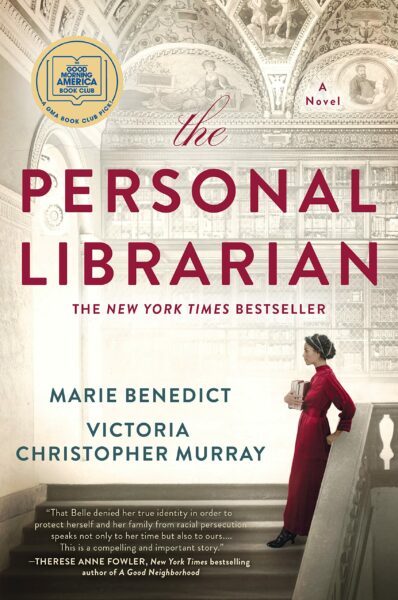
The Personal Librarian, by Marie Benedict & Victoria Christopher Murray
The remarkable story of J. P. Morgan’s personal librarian, Belle da Costa Greene, the Black American woman who was forced to hide her true identity and pass as white to leave a lasting legacy that enriched our nation, from New York Times bestselling author Marie Benedict, and acclaimed author Victoria Christopher Murray.
In her twenties, Belle da Costa Greene is hired by J. P. Morgan to curate a collection of rare manuscripts, books, and artwork for his newly built Pierpont Morgan Library. Belle becomes a fixture in New York City society and one of the most powerful people in the art and book world, known for her impeccable taste and shrewd negotiating for critical works as she helps create a world-class collection.
But Belle has a secret, one she must protect at all costs. She was born not Belle da Costa Greene but Belle Marion Greener. She is the daughter of Richard Greener, the first Black graduate of Harvard and a well-known advocate for equality. Belle’s complexion isn’t dark because of her alleged Portuguese heritage that lets her pass as white—her complexion is dark because she is African American.
The Personal Librarian tells the story of an extraordinary woman, famous for her intellect, style, and wit, and shares the lengths she must go to—for the protection of her family and her legacy—to preserve her carefully crafted white identity in the racist world in which she lives.
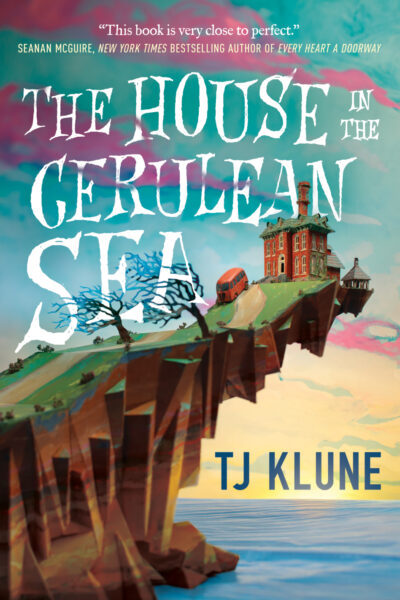
The House in the Cerulean Sea, by T. J. Klune
Linus Baker is a by-the-book case worker in the Department in Charge of Magical Youth. He’s tasked with determining whether six dangerous magical children are likely to bring about the end of the world.
Arthur Parnassus is the master of the orphanage. He would do anything to keep the children safe, even if it means the world will burn. And his secrets will come to light.
The House in the Cerulean Sea is an enchanting love story, masterfully told, about the profound experience of discovering an unlikely family in an unexpected place―and realizing that family is yours.
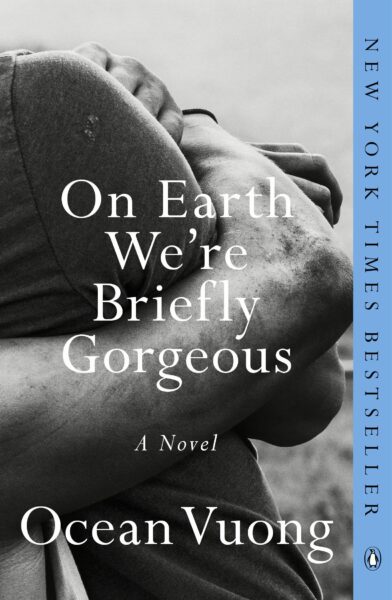
On Earth We’re Briefly Gorgeous: A Novel, by Ocean Vuong
On Earth We’re Briefly Gorgeous is a letter from a son to a mother who cannot read. Written when the speaker, Little Dog, is in his late twenties, the letter unearths a family’s history that began before he was born — a history whose epicenter is rooted in Vietnam — and serves as a doorway into parts of his life his mother has never known, all of it leading to an unforgettable revelation. At once a witness to the fraught yet undeniable love between a single mother and her son, it is also a brutally honest exploration of race, class, and masculinity. Asking questions central to our American moment, immersed as we are in addiction, violence, and trauma, but undergirded by compassion and tenderness, On Earth We’re Briefly Gorgeous is as much about the power of telling one’s own story as it is about the obliterating silence of not being heard.
With stunning urgency and grace, Ocean Vuong writes of people caught between disparate worlds, and asks how we heal and rescue one another without forsaking who we are. The question of how to survive, and how to make of it a kind of joy, powers the most important debut novel of many years.
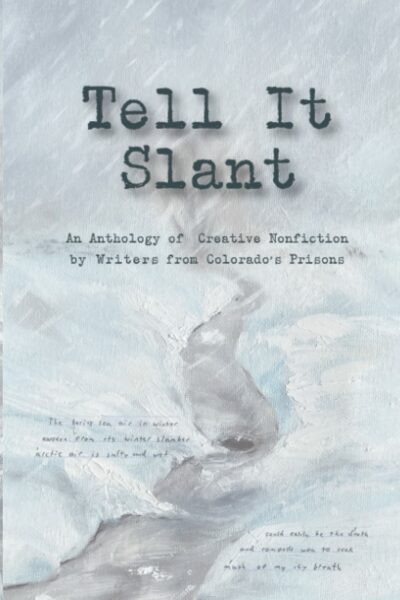
Tell It Slant: An Anthology of Creative Nonfiction by Writers from Colorado’s Prisons, Edited by Suzi Q. Smith (Colorado authors!)
In a time of unprecedented isolation, the stories we tell ourselves and each other create a sense of community, of belonging. The writings in this anthology come from a correspondence course, Tell it Slant: Reading & Writing Creative Nonfiction, that the University of Denver’s Prison Arts Initiative (DU PAI) offered in collaboration with the Colorado Department of Corrections (CDOC) at nine state facilities. As we designed the course, which would be offered in the midst of the Coronavirus pandemic, we wanted to focus on the power of telling our truths as a means to feel connected to each other. DU PAI believes that artistic practice, both “inside” and “outside,” has therapeutic benefits for the individual and the community. We are also convinced that incarcerated people have important insights and creative expressions to share. The class itself and this anthology were motivated by these two beliefs. Immerse yourself in the range of emotions these pieces explore.
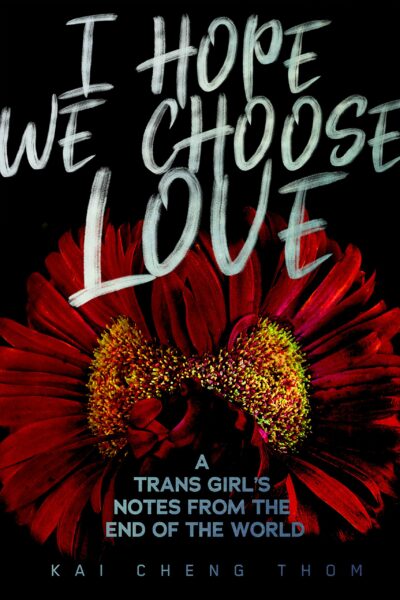
I Hope We Choose Love, by Kai Cheng Thom
What can we hope for at the end of the world? What can we trust in when community has broken our hearts? What would it mean to pursue justice without violence? How can we love in the absence of faith?
In a heartbreaking yet hopeful collection of personal essays and prose poems, blending the confessional, political, and literary, acclaimed poet and essayist Kai Cheng Thom dives deep into the questions that haunt social movements today. With the author’s characteristic eloquence and honesty, I Hope We Choose Love proposes heartfelt solutions on the topics of violence, complicity, family, vengeance, and forgiveness. Taking its cues from contemporary thought leaders in the transformative justice movement such as adrienne maree brown and Leah Lakshmi Piepzna-Samarasinha, this provocative book is a call for nuance in a time of political polarization, for healing in a time of justice, and for love in an apocalypse.
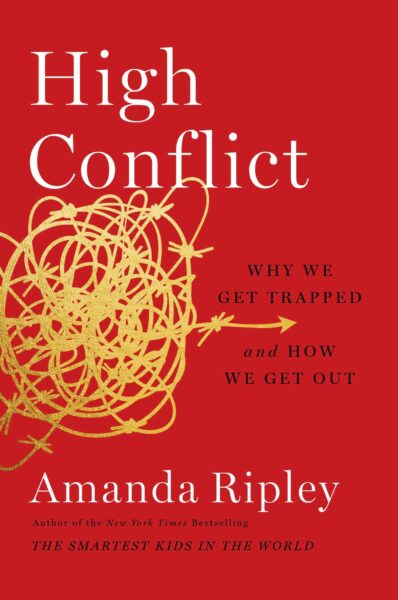
High Conflict: Why We Get Trapped and How We Get Out, by Amanda Ripley
When we are baffled by the insanity of the “other side”—in our politics, at work, or at home—it’s because we aren’t seeing how the conflict itself has taken over.
That’s what “high conflict” does. It’s the invisible hand of our time. And it’s different from the useful friction of healthy conflict. That’s good conflict, and it’s a necessary force that pushes us to be better people.
High conflict is what happens when discord distills into a good-versus-evil kind of feud, the kind with an us and a them. In this state, the brain behaves differently. We feel increasingly certain of our own superiority, and everything we do to try to end the conflict, usually makes it worse. Eventually, we can start to mimic the behavior of our adversaries, harming what we hold most dear.
In this “compulsively readable” (Evan Osnos, National Book Award-winning author) book, New York Times bestselling author and award-winning journalist Amanda Ripley investigates how good people get captured by high conflict—and how they break free.
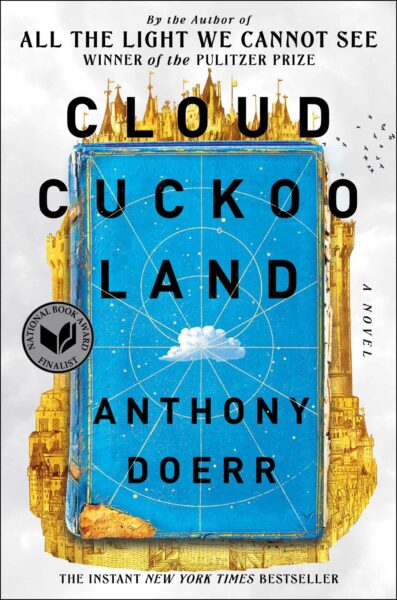
Cloud Cuckoo Land, by Anthony Doerr
Among the most celebrated and beloved novels of recent times, Cloud Cuckoo Land is a triumph of imagination and compassion, a soaring story about children on the cusp of adulthood in worlds in peril, who find resilience, hope, and a book.
In the 15th century, an orphan named Anna lives inside the formidable walls of Constantinople. She learns to read, and in this ancient city, famous for its libraries, she finds what might be the last copy of a centuries-old book, the story of Aethon, who longs to be turned into a bird so that he can fly to a utopian paradise in the sky. Outside the walls is Omeir, a village boy, conscripted with his beloved oxen into the army that will lay siege to the city. His path and Anna’s will cross.
In the present day, in a library in Idaho, octogenarian Zeno rehearses children in a play adaptation of Aethon’s story, preserved against all odds through centuries. Tucked among the library shelves is a bomb, planted by a troubled, idealistic teenager, Seymour. This is another siege.
And in a not-so-distant future, on the interstellar ship Argos, Konstance is alone in a vault, copying on scraps of sacking the story of Aethon, told to her by her father.
Anna, Omeir, Seymour, Zeno, and Konstance are dreamers and outsiders whose lives are gloriously intertwined. Doerr’s dazzling imagination transports us to worlds so dramatic and immersive that we forget, for a time, our own.
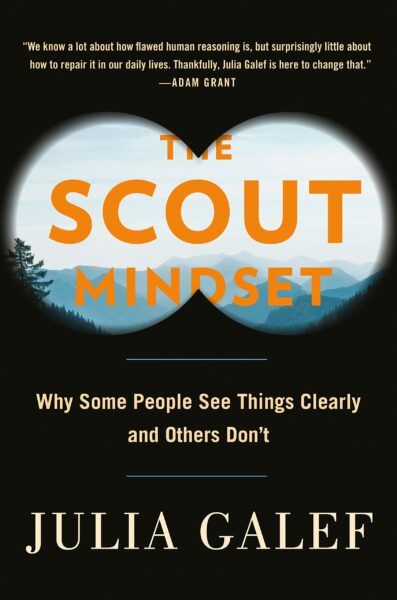
The Scout Mindset: Why Some People See Things Clearly and Others Don’t, by Julia Galef
When it comes to what we believe, humans see what they want to see. In other words, we have what Julia Galef calls a “soldier” mindset. From tribalism and wishful thinking, to rationalizing in our personal lives and everything in between, we are driven to defend the ideas we most want to believe—and shoot down those we don’t. But if we want to get things right more often, argues Galef, we should train ourselves to have a “scout” mindset. Unlike the soldier, a scout’s goal isn’t to defend one side over the other. It’s to go out, survey the territory, and come back with as accurate a map as possible. Regardless of what they hope to be the case, above all, the scout wants to know what’s actually true. In The Scout Mindset, Galef shows that what makes scouts better at getting things right isn’t that they’re smarter or more knowledgeable than everyone else. It’s a handful of emotional skills, habits, and ways of looking at the world—which anyone can learn. With fascinating examples ranging from how to survive being stranded in the middle of the ocean, to how Jeff Bezos avoids overconfidence, to how superforecasters outperform CIA operatives, to Reddit threads and modern partisan politics, Galef explores why our brains deceive us and what we can do to change the way we think.
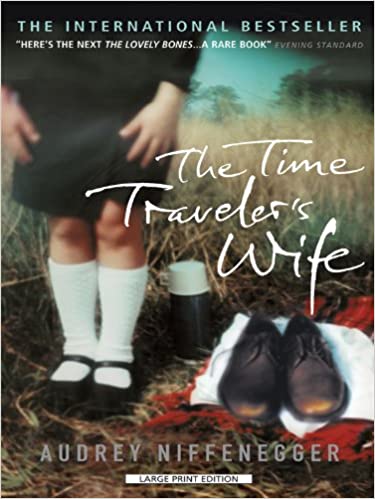
The Time Traveler’s Wife, Audrey Niffenegger
Henry DeTamble is a dashing, adventurous librarian who is at the mercy of his random time time-traveling abilities. Clare Abshire is an artist whose life moves through a natural sequential course. This is the celebrated and timeless tale of their love. Henry and Clare’s passionate affair is built and endures across a sea of time and captures them in an impossibly romantic trap that tests the strength of fate and basks in the bonds of love.
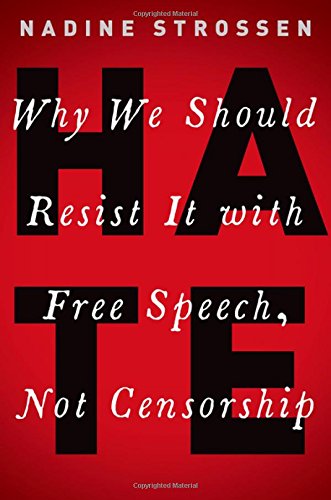
Hate: Why We Should Resist It with Free Speech, Not Censorship, by Nadine Strossen
The updated paperback edition of HATE dispels misunderstandings plaguing our perennial debates about “hate speech vs. free speech,” showing that the First Amendment approach promotes free speech and democracy, equality, and societal harmony. As “hate speech” has no generally accepted definition, we hear many incorrect assumptions that it is either absolutely unprotected or absolutely protected from censorship. Rather, U.S. law allows government to punish hateful or discriminatory speech in specific contexts when it directly causes imminent serious harm. Yet, government may not punish such speech solely because its message is disfavored, disturbing, or vaguely feared to possibly contribute to some future harm. “Hate speech” censorship proponents stress the potential harms such speech might further: discrimination, violence, and psychic injuries. However, there has been little analysis of whether censorship effectively counters the feared injuries. Citing evidence from many countries, this book shows that “hate speech” are at best ineffective and at worst counterproductive. Therefore, prominent social justice advocates worldwide maintain that the best way to resist hate and promote equality is not censorship, but rather, vigorous “counterspeech” and activism.
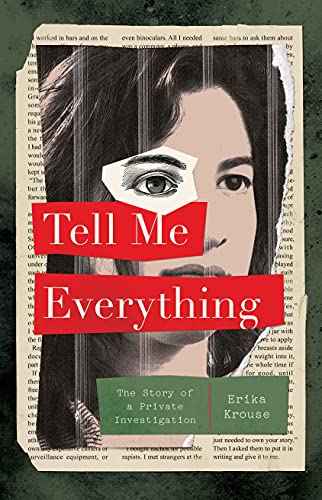
Tell Me Everything: The Story of a Private Investigation, by Erika Krouse (Colorado author!)
Part memoir and part literary true crime, Tell Me Everything is the mesmerizing story of a landmark sexual assault investigation and the female private investigator who helped crack it open.
Erika Krouse has one of those faces. “I don’t know why I’m telling you this,” people say, spilling confessions. In fall 2002, Erika accepts a new contract job investigating lawsuits as a private investigator. The role seems perfect for her, but she quickly realizes she has no idea what she’s doing. Then a lawyer named Grayson assigns her to investigate a sexual assault, a college student who was attacked by football players and recruits at a party a year earlier. Erika knows she should turn the assignment down. Her own history with sexual violence makes it all too personal. But she takes the job anyway inspired by Grayson’s conviction that he could help change things forever. And maybe she could, too.
Over the next five years, Erika learns everything she can about P. I. technique, tracking down witnesses and investigating a culture of sexual assault and harassment ingrained in the university’s football program. But as the investigation grows into a national scandal and a historic civil rights case, Erika finds herself increasingly consumed. When the case and her life both implode at the same time, Erika must figure out how to help win the case without losing herself.
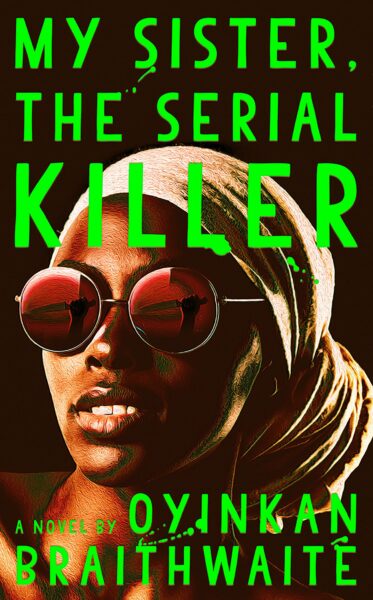
My Sister, the Serial Killer: A Novel, by Oyinkan Braithwaite
Korede’s sister Ayoola is many things: the favorite child, the beautiful one, possibly sociopathic. And now Ayoola’s third boyfriend in a row is dead, stabbed through the heart with Ayoola’s knife.
Korede’s practicality is the sisters’ saving grace. She knows the best solutions for cleaning blood (bleach, bleach, and more bleach), the best way to move a body (wrap it in sheets like a mummy), and she keeps Ayoola from posting pictures to Instagram when she should be mourning her “missing” boyfriend. Not that she gets any credit.
Korede has long been in love with a kind, handsome doctor at the hospital where she works. She dreams of the day when he will realize that she’s exactly what he needs. But when he asks Korede for Ayoola’s phone number, she must reckon with what her sister has become and how far she’s willing to go to protect her.
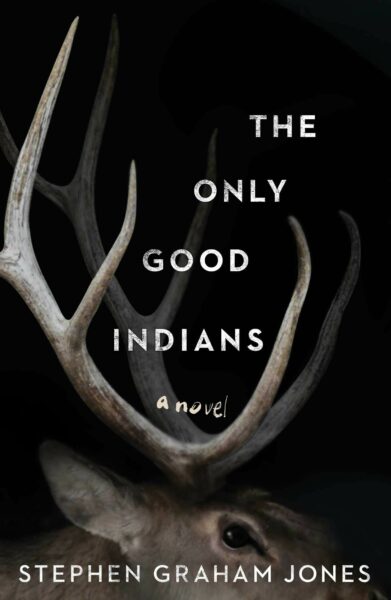
The Only Good Indians, by Stephen Graham Jones (Colorado author!)
From New York Times bestselling author Stephen Graham Jones comes a novel that is equal parts psychological horror and cutting social commentary on identity politics and the American Indian experience. Fans of Jordan Peele and Tommy Orange will love this story as it follows the lives of four American Indian men and their families, all haunted by a disturbing, deadly event that took place in their youth. Years later, they find themselves tracked by an entity bent on revenge, totally helpless as the culture and traditions they left behind catch up to them in a violent, vengeful way.
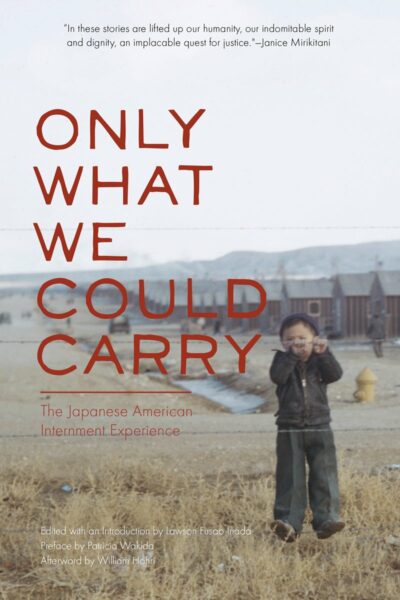
Only What We Could Carry: The Japanese American Internment Experience, by Lawson Fusao Inada (Editor)
In the wake of wartime panic that followed the Japanese attack of Pearl Harbor, more than 100,000 Japanese Americans residing along the West Coast of the United States were uprooted from their homes and their communities and banished to internment camps throughout the country.
Through personal documents, art, and propaganda, Only What We Could Carry expresses through words, art, and haunting recollections, the fear, confusion and anger of the camp experience. The only anthology of its kind, Only What We Could Carry is an emotional and intellectual testament to the dignity, spirit and strength of the Japanese American internees.
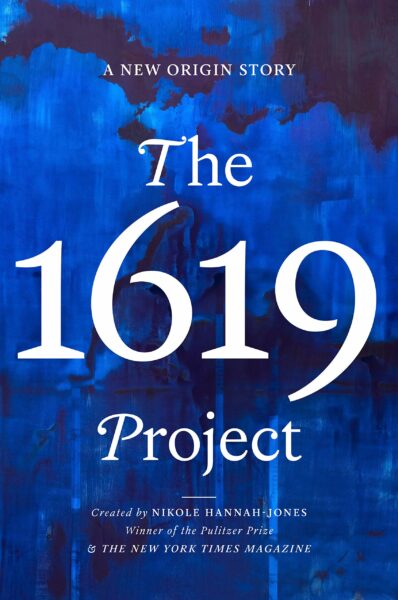
The 1619 Project: A New Origin Story, by Nikole Hannah-Jones
The 1619 Project is The New York Times Magazine’s award-winning reframing of American history that placed slavery and its continuing legacy at the center of our national narrative. The project, which was initially launched in August of 2019, offered a revealing new origin story for the United States, one that helped explain not only the persistence of anti-Black racism and inequality in American life today, but also the roots of so much of what makes the country unique.
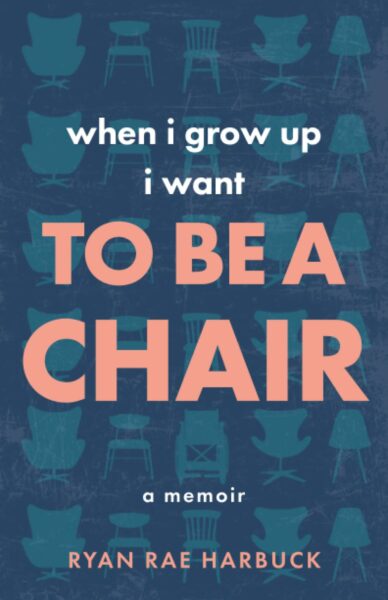
When I Grow Up I Want to Be a Chair: A Memoir by Ryan Rae Harbuck (Colorado author!)
HER STORY HAS (NOT) DEFINED HER.
From where she sat, her perspective of the world was both quite ordinary and rivetingly extraordinary—from a paralyzing car accident in her teens to traveling overseas on a journey of self-reflection to becoming a mom. Throughout everything she experienced, she fervently believed in following her given path.
She wanted to trust its trajectory. She wanted to be sure.
HER STORY IS NOT ABOUT A CHAIR.
Her story is about her strengths and how they rose out of her instinctive vulnerabilities.
Her story is about her struggles and how they became her victories.
Her story is about being willing to hold it all, for herself and the whole of her world.
Everyone has a chair. That thing you are bound to or unwillingly defines you. An element that makes you different from the rest. One that you have little choice in the matter.
What’s YOUR chair?
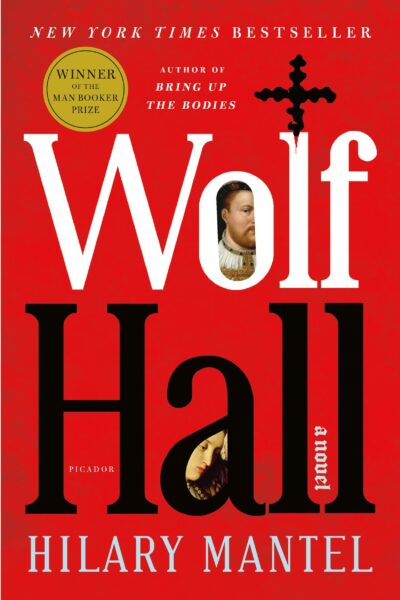
Wolf Hall, by Hilary Mantel
England in the 1520s is a heartbeat from disaster. If the king dies without a male heir, the country could be destroyed by civil war. Henry VIII wants to annul his marriage of twenty years and marry Anne Boleyn. The pope and most of Europe opposes him. Into this impasse steps Thomas Cromwell: a wholly original man, a charmer and a bully, both idealist and opportunist, astute in reading people, and implacable in his ambition. But Henry is volatile: one day tender, one day murderous. Cromwell helps him break the opposition, but what will be the price of his triumph?
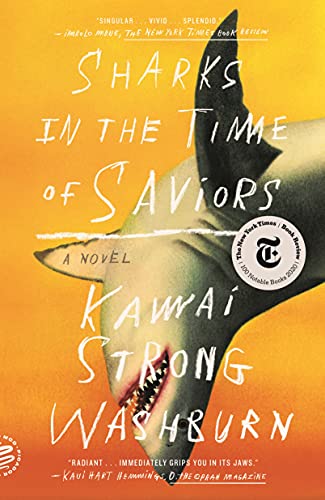
Sharks in the Time of Saviors: A Novel, by Kawai Strong Washburn
In 1995 Kailua-Kona, Hawaii, on a rare family vacation, seven-year-old Nainoa Flores falls overboard a cruise ship into the Pacific Ocean. When a shiver of sharks appears in the water, everyone fears for the worst. But instead, Noa is gingerly delivered to his mother in the jaws of a shark, marking his story as the stuff of legends. Nainoa’s family, struggling amidst the collapse of the sugarcane industry, hails his rescue as a sign of favor from ancient Hawaiian gods—a belief that appears validated after he exhibits puzzling new abilities. But as time passes, this supposed divine favor begins to drive the family apart: Nainoa, working now as a paramedic on the streets of Portland, struggles to fathom the full measure of his expanding abilities; further north in Washington, his older brother Dean hurtles into the world of elite college athletics, obsessed with wealth and fame; while in California, risk-obsessed younger sister Kaui navigates an unforgiving academic workload in an attempt to forge her independence from the family’s legacy. When supernatural events revisit the Flores family in Hawai’i—with tragic consequences—they are all forced to reckon with the bonds of family, the meaning of heritage, and the cost of survival.
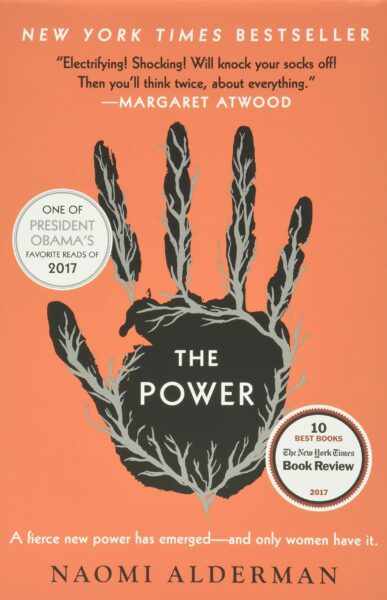
The Power, by Naomi Alderman
In this book you will come to understand that all it takes is just one thing to change your relationships, money, health, happiness, career, and your entire life. Every discovery, invention, and human creation comes from The Power. Perfect health, incredible relationships, a career you love, a life filled with happiness, and the money you need to be, do, and have everything you want, all come from The Power. The life of your dreams has always been closer to you than you realized, because The Power—to have everything good in your life—is inside you. To create anything, to change anything, all it takes is just one thing…THE POWER.
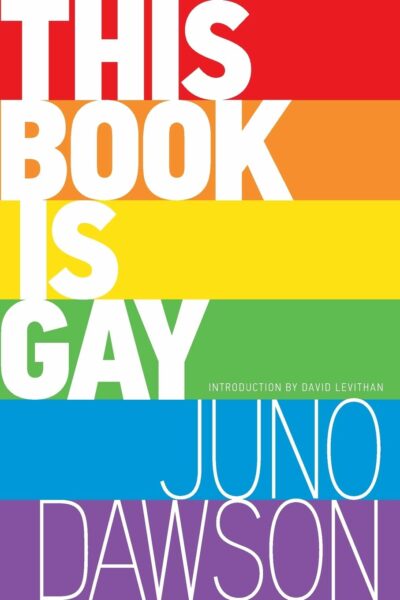
This Book Is Gay, by Juno Dawson
Lesbian. Gay. Bisexual. Transgender. Queer. Intersex. Straight. Curious. This book is for everyone, regardless of gender or sexual preference. This book is for anyone who’s ever dared to wonder. This book is for YOU. This candid, funny, and uncensored exploration of sexuality and what it’s like to grow up LGBTQ also includes real stories from people across the gender and sexual spectrums, not to mention hilarious illustrations. Inside this revised and updated edition, you’ll find the answers to all the questions you ever wanted to ask, with topics like:
• Stereotypes―the facts and fiction
• Coming out as LGBT
• Where to meet people like you
• The ins and outs of gay sex
• How to flirt
• And so much more!
You will be entertained. You will be informed. But most importantly, you will know that however you identify (or don’t) and whomever you love, you are exceptional. You matter. And so does this book.
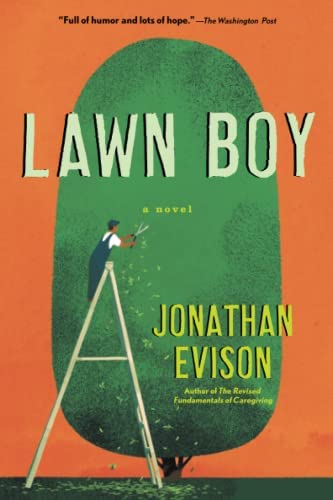
Lawn Boy, by Jonathan Evison
For Mike Muñoz, a young Chicano living in Washington State, life has been a whole lot of waiting for something to happen. Not too many years out of high school and still doing menial work—and just fired from his latest gig as a lawn boy on a landscaping crew—he knows that he’s got to be the one to shake things up if he’s ever going to change his life. But how?
In this funny, angry, touching, and ultimately deeply inspiring novel, bestselling author Jonathan Evison takes the reader into the heart and mind of a young man on a journey to discover himself, a search to find the secret to achieving the American dream of happiness and prosperity. That’s the birthright for all Americans, isn’t it? If so, then what is Mike Muñoz’s problem? Though he tries time and again to get his foot on the first rung of that ladder to success, he can’t seem to get a break. But then things start to change for Mike, and after a raucous, jarring, and challenging trip, he finds he can finally see the future and his place in it. And it’s looking really good.
Lawn Boy is an important, entertaining, and completely winning novel about social class distinctions, about overcoming cultural discrimination, and about standing up for oneself.
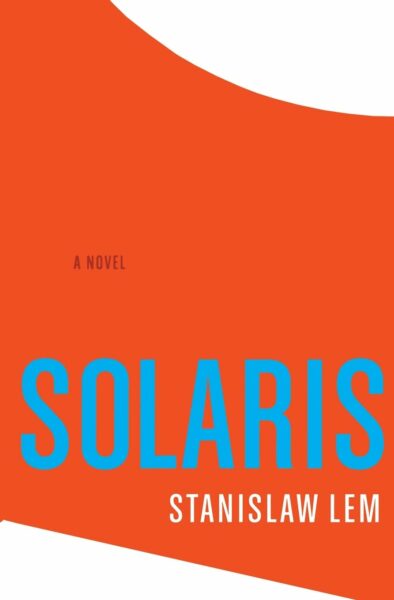
Solaris, by Stanisław Lem
When psychologist Kris Kelvin arrives at the planet Solaris to study the ocean that covers its surface, he finds himself confronting a painful memory embodied in the physical likeness of a past lover. Kelvin learns that he is not alone in this and that other crews examining the planet are plagued with their own repressed and newly real memories. Could it be, as Solaris scientists speculate, that the ocean may be a massive neural center creating these memories, for a reason no one can identify?
Long considered a classic, Solaris asks the question: Can we understand the universe around us without first understanding what lies within?
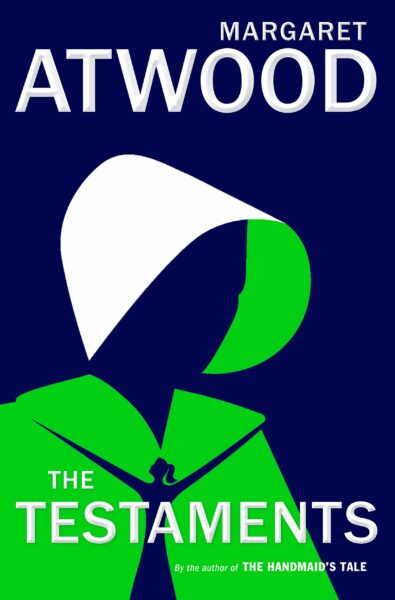
The Testaments, by Margaret Atwood
More than fifteen years after the events of The Handmaid’s Tale, the theocratic regime of the Republic of Gilead maintains its grip on power, but there are signs it is beginning to rot from within. At this crucial moment, the lives of three radically different women converge, with potentially explosive results. Two have grown up as part of the first generation to come of age in the new order. The testimonies of these two young women are joined by a third: Aunt Lydia. Her complex past and uncertain future unfold in surprising and pivotal ways. With The Testaments, Margaret Atwood opens up the innermost workings of Gilead, as each woman is forced to come to terms with who she is, and how far she will go for what she believes.
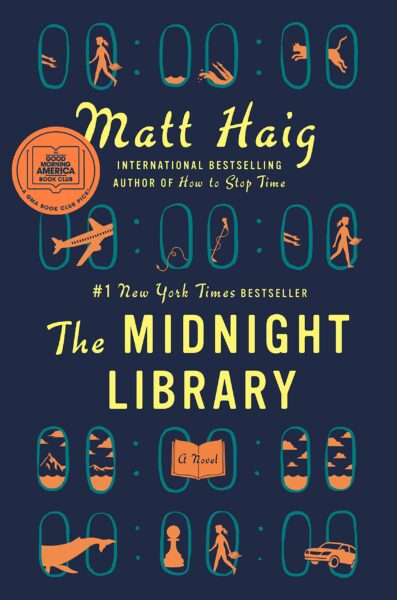
The Midnight Library, by Matt Haig
Somewhere out beyond the edge of the universe there is a library that contains an infinite number of books, each one the story of another reality. One tells the story of your life as it is, along with another book for the other life you could have lived if you had made a different choice at any point in your life. While we all wonder how our lives might have been, what if you had the chance to go to the library and see for yourself? Would any of these other lives truly be better?
In The Midnight Library, Matt Haig’s enchanting blockbuster novel, Nora Seed finds herself faced with this decision. Faced with the possibility of changing her life for a new one, following a different career, undoing old breakups, realizing her dreams of becoming a glaciologist; she must search within herself as she travels through the Midnight Library to decide what is truly fulfilling in life, and what makes it worth living in the first place.
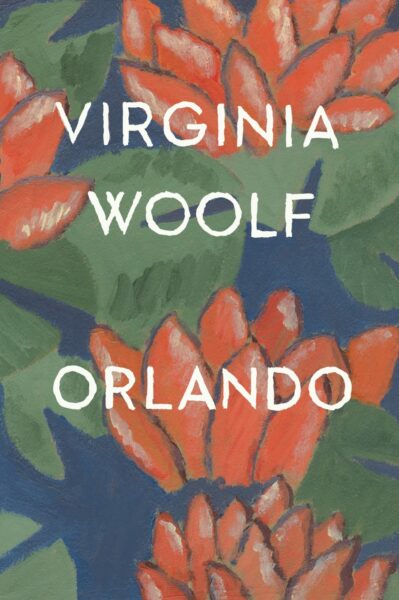
Orlando, by Virginia Woolf
As his tale begins, Orlando is a passionate sixteen-year-old nobleman whose days are spent in rowdy revelry, filled with the colorful delights of Queen Elizabeth I’s court. By the close, three centuries have passed, and he will have transformed into a thirty-six-year-old woman in the year 1928. Orlando’s journey is also an internal one—he is an impulsive poet who learns patience in matter of the heart, and a woman who knows what it is to be a man.
Virginia Woolf’s most unusual creation, Orlando is a fantastical biography as well as a funny, exuberant romp through history that examines the true nature of sexuality.
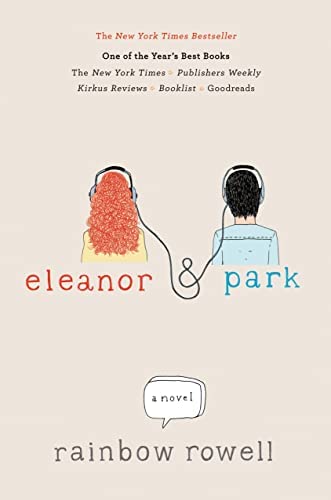
Eleanor & Park, by Rainbow Rowell
Bono met his wife in high school, Park says.
So did Jerry Lee Lewis, Eleanor answers.
I’m not kidding, he says.
You should be, she says, we’re 16.
What about Romeo and Juliet?
Shallow, confused, then dead.
I love you, Park says.
Wherefore art thou, Eleanor answers.
I’m not kidding, he says.
You should be.
Set over the course of one school year in 1986, this is the story of two star-crossed misfits-smart enough to know that first love almost never lasts, but brave and desperate enough to try. When Eleanor meets Park, you’ll remember your own first love-and just how hard it pulled you under.
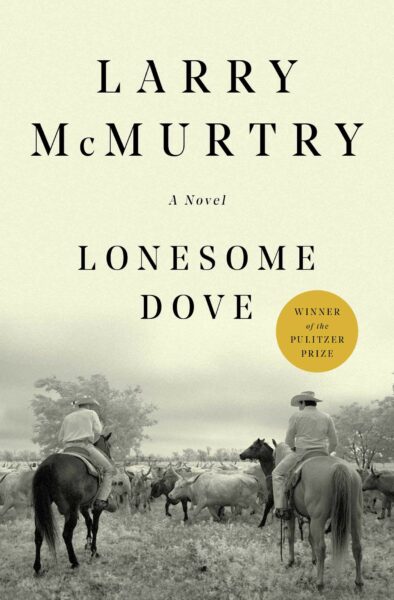
Lonesome Dove, by Larry McMurtry
The Pulitzer Prize–winning American classic of the American West that follows two aging Texas Rangers embarking on one last adventure. An epic of the frontier, Lonesome Dove is the grandest novel ever written about the last defiant wilderness of America.
Journey to the dusty little Texas town of Lonesome Dove and meet an unforgettable assortment of heroes and outlaws, whores and ladies, Indians and settlers. Richly authentic, beautifully written, always dramatic, Lonesome Dove is a book to make us laugh, weep, dream, and remember.
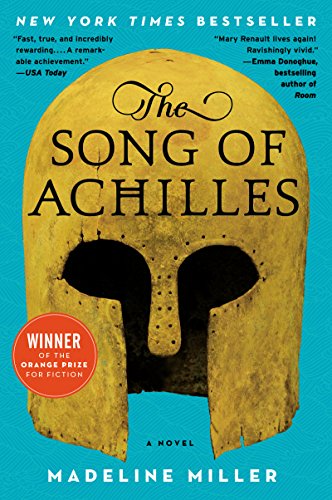
The Song of Achilles, by Madeline Miller
A tale of gods, kings, immortal fame, and the human heart, The Song of Achilles is a dazzling literary feat that brilliantly reimagines Homer’s enduring masterwork, The Iliad. An action-packed adventure, an epic love story, a marvelously conceived and executed page-turner, Miller’s monumental debut novel has already earned resounding acclaim from some of contemporary fiction’s brightest lights—and fans of Mary Renault, Bernard Cornwell, Steven Pressfield, and Colleen McCullough’s Masters of Rome series will delight in this unforgettable journey back to ancient Greece in the Age of Heroes.
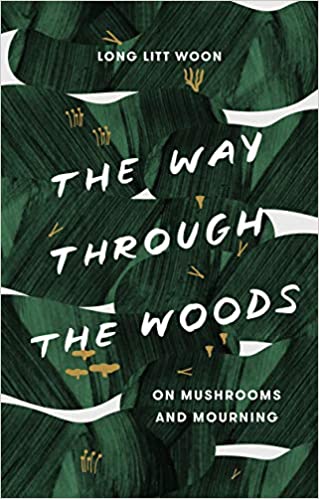
The Way Through the Woods: On Mushrooms and Mourning, by Litt Woon Long
Long Litt Woon met Eiolf a month after arriving in Norway from Malaysia as an exchange student. They fell in love, married, and settled into domestic bliss. Then Eiolf’s unexpected death at fifty-four left Woon struggling to imagine a life without the man who had been her partner and anchor for thirty-two years. Adrift in grief, she signed up for a beginner’s course on mushrooming—a course the two of them had planned to take together—and found, to her surprise, that the pursuit of mushrooms rekindled her zest for life. The Way Through the Woods tells the story of parallel journeys: an inner one, through the landscape of mourning, and an outer one, into the fascinating realm of mushrooms—resilient, adaptable, and essential to nature’s cycle of death and rebirth. From idyllic Norwegian forests and urban flower beds to the sandy beaches of Corsica and New York’s Central Park, Woon uncovers an abundance of surprises often hidden in plain sight: salmon-pink Bloody Milk Caps, which ooze red liquid when cut; delectable morels, prized for their earthy yet delicate flavor; and bioluminescent mushrooms that light up the forest at night. Along the way, she discovers the warm fellowship of other mushroom obsessives, and finds that giving her full attention to the natural world transforms her, opening a way for her.
*Descriptions were taken from author/publisher websites when available or commercial sites.
- Accessibility Quick Tip: What is Universal Design and how does it relate to accessibility? - December 10, 2024
- Banned Books for Your Book Club - December 4, 2024
- Closing Soon: Publish your creative writing on this site (Colorado authors) - November 22, 2024